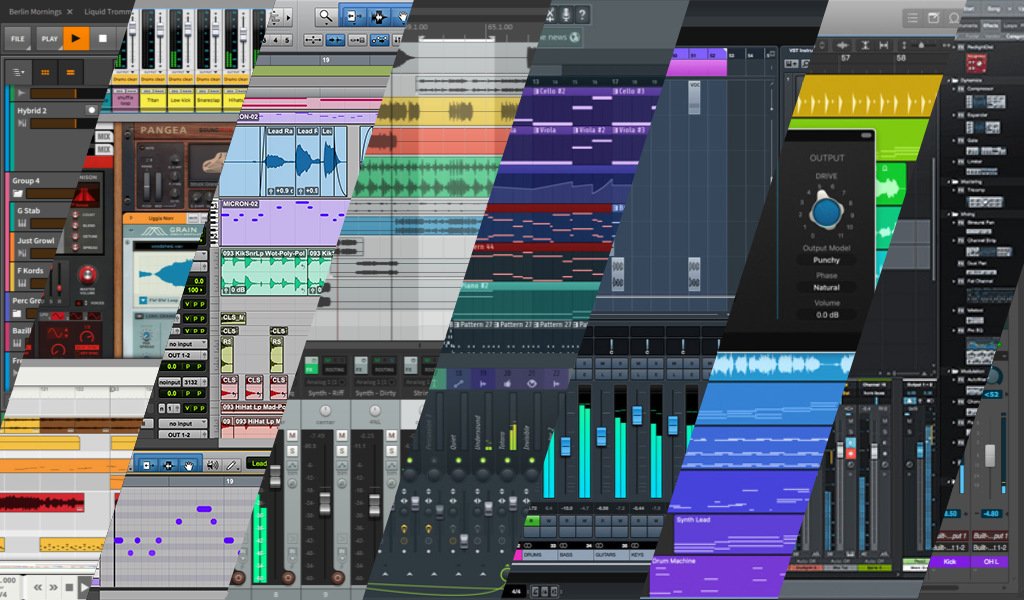Are you a beginner music producer looking for the best Digital Audio Workstation (DAW) to kickstart your creative journey? With so many options out there, finding the right DAW can feel overwhelming. Don’t worry—this guide will help you navigate the process and choose the best DAW to meet your needs. Whether you’re into electronic beats, live recording, or cinematic compositions, there’s a perfect DAW for you.
We’ve added a few links to some free trials toward the bottom of this post.
What Is a DAW, and Why Does It Matter?
A DAW is the software you’ll use to record, edit, produce, and mix your music. It’s the cornerstone of your music production workflow. Choosing the right DAW as a beginner can save you time, money, and frustration while providing you with tools to bring your ideas to life.
1. Define Your Music Production Goals
First, start by identifying what you want to achieve with your DAW. Different DAWs excel at different tasks:
- Electronic Music Production: DAWs like Ableton Live and FL Studio are designed for electronic music, offering loop-based workflows and powerful synths.
- Live Recording: If you plan to record vocals or live instruments, Pro Tools or Studio One are excellent options.
- Orchestration and Scoring: Composers often favor Logic Pro or Cubase for their robust MIDI editing and virtual instrument support.
2. Set a Budget
The next thing you’ll need to do is set a budget. DAWs come in various price ranges, from free to premium. Here are some options for every budget:
- Free DAWs: Try Cakewalk by BandLab or GarageBand (for macOS users). Both are beginner-friendly and feature-rich.
- Affordable Options: Reaper offers a generous free trial and affordable licensing, making it a favorite for beginners on a budget.
- Professional Tools: Premium DAWs like Ableton Live, Logic Pro, and Pro Tools provide advanced features but come with higher price tags.
3. Prioritize User-Friendliness
As a beginner, choosing an easy-to-learn DAW can make all the difference. Some DAWs, like GarageBand and FL Studio, are highly intuitive, with simple interfaces and helpful tutorials. Others, like Ableton Live, may require a steeper learning curve but offer unparalleled flexibility and power.
4. Check Compatibility
Now you’ll want to make sure the DAW you choose is compatible with your computer’s operating system:
- macOS Exclusive DAWs: GarageBand and Logic Pro
- Windows-Only DAWs: Cakewalk by BandLab
- Cross-Platform DAWs: Popular choices like Ableton Live, FL Studio, and Reaper work on both macOS and Windows.
Also, ensure your computer meets the system requirements of the DAW to avoid performance issues.
5. Evaluate Built-In Features
Beginner-friendly DAWs often come with built-in sounds, instruments, and effects:
- Extensive Libraries: DAWs like FL Studio and Logic Pro offer thousands of virtual instruments, loops, and effects, so you can start creating without additional plugins.
- Plugin Support: Look for DAWs that support popular formats like VST, AU, or AAX for future flexibility.
6. Use Free Trials
Most premium DAWs offer free trials. This is the perfect opportunity to test their features and workflows before committing. Experiment with a few to find one that feels intuitive and aligns with your style. Here are a few suggestions. Just click the links and get started creating!
7. Leverage the Community
A DAW with an active online community can be a huge advantage. Platforms like Ableton Live, FL Studio, and Logic Pro have vibrant user forums, social media groups, and countless video tutorials to help you learn.
Key Takeaways
- Choose a DAW that aligns with your music production goals (e.g., electronic, live recording, orchestration).
- Consider your budget and explore free or affordable options like GarageBand, Cakewalk, or Reaper.
- Test compatibility with your computer and ensure the DAW includes beginner-friendly features.
- Take advantage of free trials and online communities to get the most out of your software.
Final Thoughts
The best DAW for beginner music producers is the one that fits your goals, budget, and learning style. Remember, every DAW is capable of creating professional-quality music. It’s less about the tool and more about how you use it. Start experimenting today, and let your creativity flow!






One thought on “How to Choose the Best DAW for Beginner Music Producers: A Comprehensive Guide”